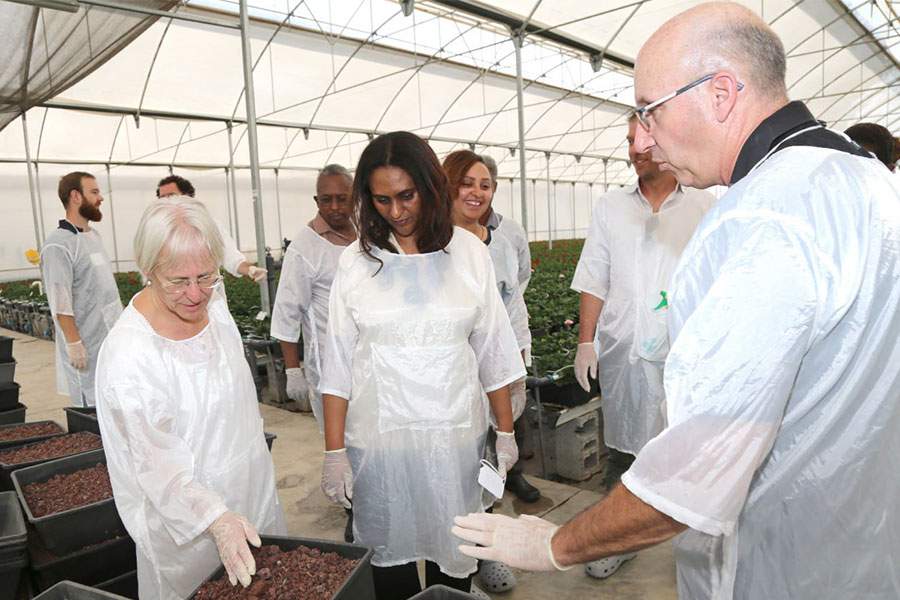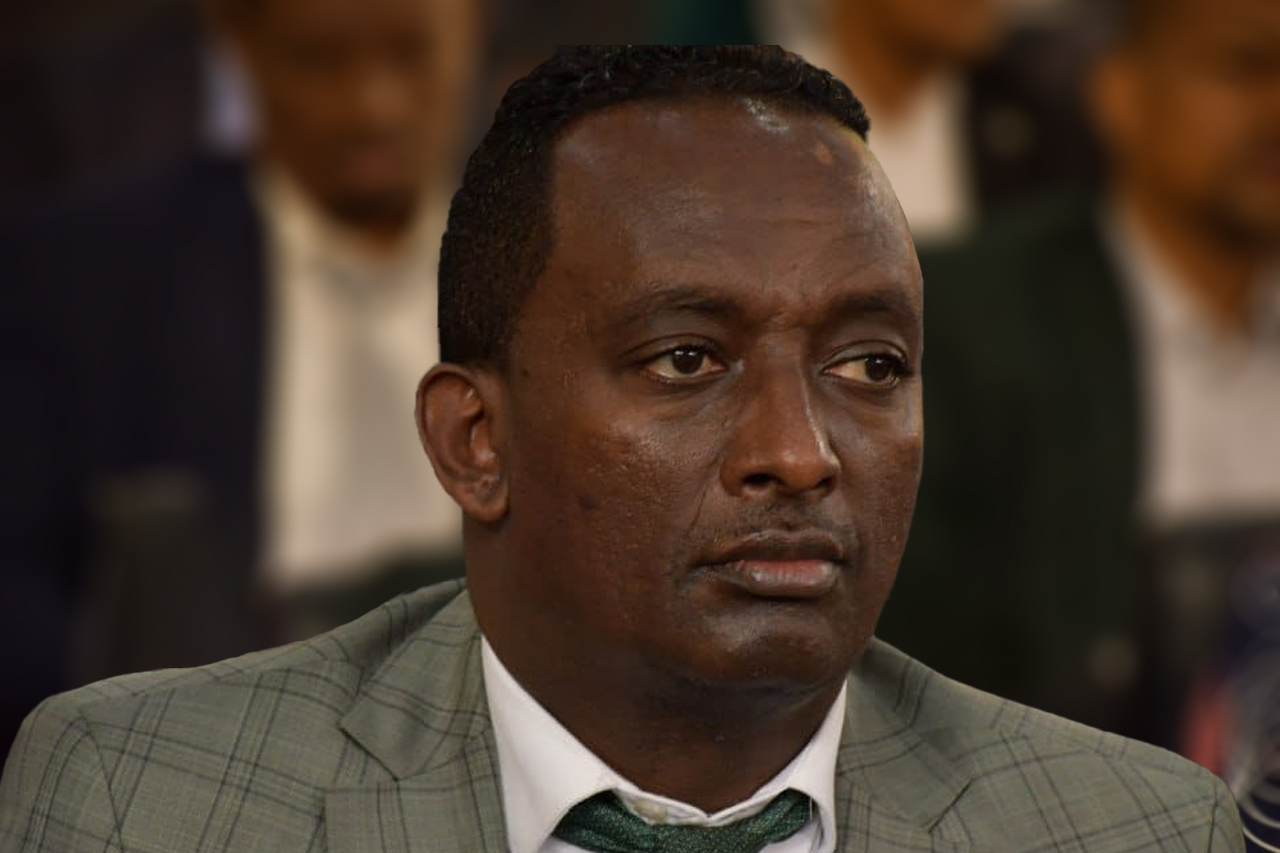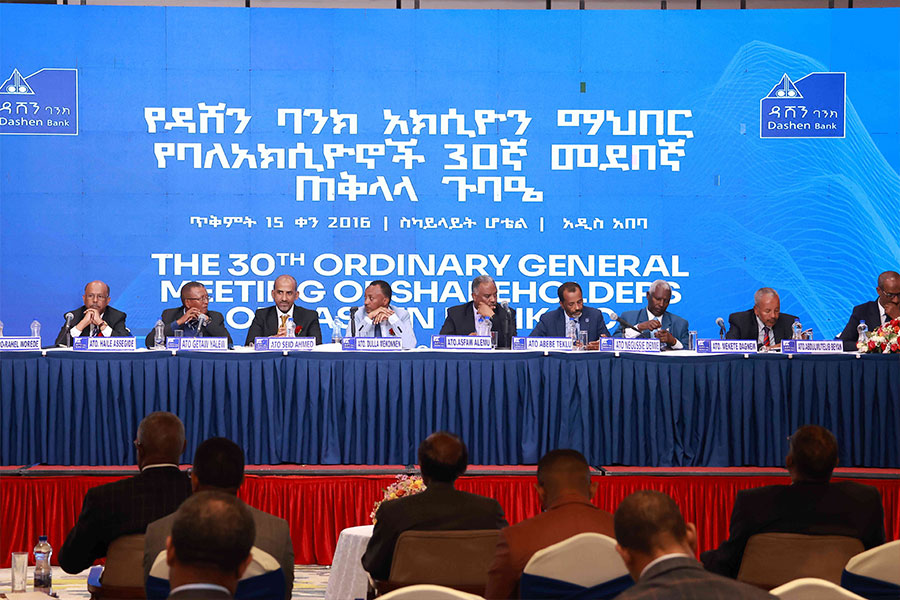
The Ethiopian Maritime Authority has hired a Spanish consultancy firm to supervise the expansion project at the country's largest dry port facility for a whopping 100 million Br.
The Modjo dry port facility is one of eight dry ports in the country, handling 90pc of inbound shipping containers. These inland logistics centres play a vital role in the economy, facilitating the transportation of raw materials to local manufacturers and the shipment of export commodities. The expansion project is part of a trade logistics programme launched in 2017. It aims to cut back waiting time from two months to three weeks, increasing the facility's efficiency, located 80Km southeast of Addis Abeba.
The Authority, under Yehualashet Jemere, signed a contract with the consultant last week. Yehualashet was a former state minister for Transport before taking the helm two months ago, replacing Mekonnen Abera, who had served as the head of the Authority since 2008.
A multinational firm specialising in engineering and consulting founded in 1956, EPTISA is expected to oversee work progress under the Modjo Dry Port expansion project over the coming two years.
Built at the cost of 20 million Br in 2009, Modjo Dry Port could accommodate 700 containers. The facility lay on 63hct of land, half of which was used for container terminal services. Its annual container handling capacity has since grown to 136,000 units. Its warehouse capacity stood at a little under 11,000sqm in 2016; it had doubled by 2020. The dry port has also acquired 86.9hct of land from neighbouring weredas in Oromia Regional State.
Nonetheless, cargo delays and long waiting times are common at the port. The dwell time of containerised general cargo at Modjo Dry Port averaged 59 days; it takes 37 days at ports in Djibouti, discovered a national logistics strategy released two years ago. Significant operational constraints were observed at the dry port, including shortages of cargo handling equipment, lack of facilities for stuffing and un-stuffing shipping containers, and an absence of proper facility management systems.
Matiwos Ensermu (PhD) is a lecturer on logistics and supply chain management at Addis Abeba University. He was recently elected to serve on the Ethiopian Logistics Sectorial Association board. Matiwos observed that efficiency at Modjo Dry Port had improved significantly since the trade logistics programme began in 2017, bringing much-needed loading equipment.
However, he noted there are still issues to be addressed.
Officials expect the expansion project, which will take up 173ht of land, to cut the average waiting time from two months to three weeks. The World Bank is financing the expansion with a concessional loan of 150 million dollars, 80pc of which is allocated to infrastructure improvement. It also includes the deployment of terminal operating and electronic gate pass systems at an estimated 10 million dollars.
The loan has a maturity of 38 years and a six-year grace period. The financier disbursed around 35 million dollars for the project last year. Since 2019, external loans of over five billion dollars have flowed in for transport, transport infrastructure and communication projects.
China Civil Engineering Construction Corporation (CCECC) was contracted for the construction last July at the cost of over 4.7 billion Br. Sellhorn Ingenieurgesellschaft, a German consulting company under Sellhorn Group, was hired to conduct design and feasibility studies. Its tasks included developing an environmental and social management plan and preparing a master plan.
The expansion project is somewhat unusual as the process of hiring an independent supervisor (EPTISA) came two months after construction began.
Officials at the Ethiopian Trade Logistics Project Office, which oversees the project under the Maritime Authority, say they were awaiting approval from the financier to hire a consultant. The Office's experts had been carrying out supervision works for the past two months, according to Desalegn Getahun, a coordinator at the Project Office. He disclosed one percent of the construction had been completed thus far.
EPITSA had worked for the Ministry of Transport & Logistics for another project in 2020. It was contracted to conduct a road safety assessment on 10 corridors believed to be accident-prone.
Officials are putting together a proposal to seek financing for the rest of the expansion, according to Desalegn. He disclosed that project managers are looking for an additional 25 million dollars from the World Bank. The agreement entails the federal government begin paying back the loans at the end of the grace period, two years from now.
Matiwos suggests opening part of the port's services to the private sector would help the government generate revenues to repay the debts. He says warehouses can be rented out, while the planned cold-chain facility at Modjo can also bring in additional resources.
The federal government is embarking on constructing a cold chain facility at Modjo Dry Port on 5.6hct of land with 50 million euros. The Dutch government covers half of the cost through the Flying Swans Consortium. The facility is expected to bolster the export of horticultural products, where the Netherlands remains the largest market.
PUBLISHED ON
Mar 19,2022 [ VOL
22 , NO
1142]

Radar | Dec 29,2018

Radar | May 24,2025

Fortune News | Nov 02,2019

Fortune News | Dec 05,2020

Radar | Oct 30,2021

Commentaries | Sep 03,2022

Radar | Oct 20,2024

Radar | Nov 19,2022

Radar | Oct 28,2023

Radar | Jul 24,2021

Dec 22 , 2024 . By TIZITA SHEWAFERAW
Charged with transforming colossal state-owned enterprises into modern and competitiv...

Aug 18 , 2024 . By AKSAH ITALO
Although predictable Yonas Zerihun's job in the ride-hailing service is not immune to...

Jul 28 , 2024 . By TIZITA SHEWAFERAW
Unhabitual, perhaps too many, Samuel Gebreyohannes, 38, used to occasionally enjoy a couple of beers at breakfast. However, he recently swit...

Jul 13 , 2024 . By AKSAH ITALO
Investors who rely on tractors, trucks, and field vehicles for commuting, transporting commodities, and f...

Jun 28 , 2025
Meseret Damtie, the assertive auditor general, has never been shy about naming names...

Jun 21 , 2025
A well-worn adage says, “Budget is not destiny, but it is direction.” Examining t...

Jun 14 , 2025
Yet again, the Horn of Africa is bracing for trouble. A region already frayed by wars...

Jun 7 , 2025
Few promises shine brighter in Addis Abeba than the pledge of a roof for every family...